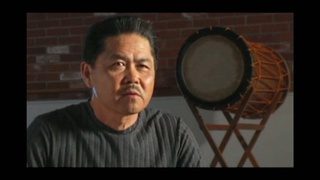Interviews
Family background of Fredrick Yoshihide Sasaki
I*: Could you please state your full name and your date and place of birth?
Well, it's Fred, Fredrick Yoshihide Sasaki, I was born July 28, 1918, in Hiroshima, Japan.
I: Could you tell us a little bit about your parents?
Oh, my parents, my father came to Canada when he was sixteen, in the year 1907. And he told me that at that time, his mother was heartbroken when he left for Canada, because she had lost a few of his brothers. They all died in their thirties, and she was... and when he told me this, he always had tears in his eyes, and he was quite emotional about it when he told me.
I: And how old was he when he emigrated?
He came here when he was seventeen.
I: And why did he come?
He came, he said he came 'cause one day his, his, he had dreams of promoting trade between Canada and Japan, and that's why he came to Canada.
I: And he was the only sibling that came?
Yes, he was the only one that came, uh-huh.
I: And what about your mother?
Oh, my mother, my mother was more or less, their wedding was arranged quite early, because they had, the two families knew each other. And what I remember about my mother was she told me, was that she was quite athletic when she was in her youth. At school, she entered a lot of the track events and that, and she always did well. And, well, my father went back to Japan in 1917 to get married, to get married to my mother. And while I was there -- while he was there, I was, I was conceived, and my mother's mother said, Don't take the baby back. Don't go back until the baby is born. So my mother stayed back, and in 1919 when I was nine months old, she brought me to Canada.
I: So the rest of your siblings were all born in Canada?
Yes, they were all born in Canada, uh-huh.
I: And so where did they settle?
My father settled in Vancouver. He told me that the year they came, in 1907, it was quite a anti-Japanese feeling, and when he disembarked from the boat, that there were people at the pier throwing rocks at them, and he remembered that quite distinctly. And a few months later, gangs of, they would raid the Japanese section, and they would be, would be fights between the whites and the Japanese in Vancouver.
I: And what year would this be?
Oh, it was 1907-1908, at that time. It's a very anti-Japanese feeling at that time. 'Cause I read later on that 1907 was the year that there were quite a few immigrants came from Japan.
I: So if it was that difficult, was he able to find work?
No, this first... he was very fortunate that he was taken in by the fire chief of Vancouver as a houseboy, he did little errands around the house, and he was allowed to go to learn English. And he told me that an Anglican priest befriended him and was very good to him and taught him English.
* "I" indicates an interviewer (Teri Yamada).
Date: September 24, 2004
Location: Toronto, Canada
Interviewer: Teri Yamada
Contributed by: Sedai, the Japanese Canadian Legacy Project, Japanese Canadian Cultural Center











